
Virtual Field Trips with an Educator
HAVE A RIVER CENTER EDUCATOR IN YOUR CLASSROOM! VIRTUALLY, OF COURSE!
The River Center offers a live component to our virtual field trips to connect experienced environmental educators and your students. Choose from our eleven virtual field trips and an expert will be on-hand to facilitate discussion, answer questions, and offer expertise and extensions to your lesson. Virtual field trips are scheduled for 60 minutes, videos are approximately 30 minutes long and we will schedule an additional 30 minutes to be with your students.
Through the support from the Loxahatchee River District, the River Center provides these programs for FREE. Our programs our designed to meet the Next Generation Sunshine State Standards for kindergarten through 12th grade. Our mission is to foster a sense of environmental stewardship for the Loxahatchee River’s diverse watershed with quality programs, educational exhibits, and meaningful events.
Program times: Dates and times are relatively flexible, please contact to inquire (561) 743-7123 or Education@LRECD.org
Live Virtual Field Trip Programs: See field trip options below
Virtual Field Trips Available for Viewing
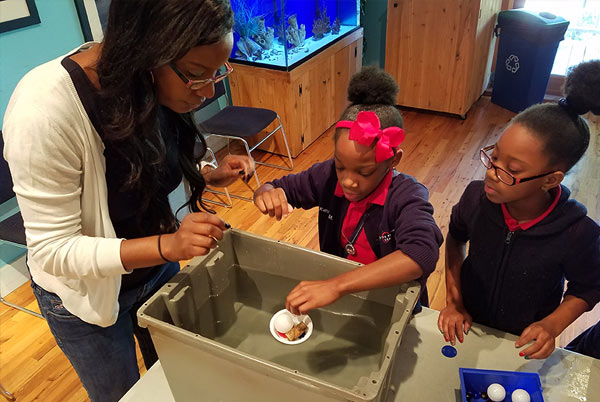
Water Properties Lab
Join our interactive lab that covers the properties of water including density, buoyancy, surface tension, and the phases of water comparing two different water types. We will make connections to salt, fresh, and brackish water in their experiments and the ecosystems in the Loxahatchee River watershed.
Recommended: Grades 3-5

Sea Urchin Lab
We will provide an introduction into the scientific method and observation driven experiments using live animals. We will take an expedition into the River Center’s touch tank to learn about all the Echinoderms of the Loxahatchee River (urchins, sea stars, and sea cucumbers). Students will participate in an activity to learn how sea urchins survive in their environment; compare them to other aquatic species, and the adaptations necessary for their survival.
Recommended: Grades K-2

Reptiles of the Loxahatchee
Reptiles are considered eco-enrichers and play a significant role in the Loxahatchee River ecosystem. Reptiles such as alligators, freshwater turtles, lizards, and snakes have unique adaptations that allow them to thrive in our swamps and marshes. Students will get up close with some of the resident reptiles, learn about their characteristics and adaptations, and discover what makes them unique.
Recommended: Grades 1-4
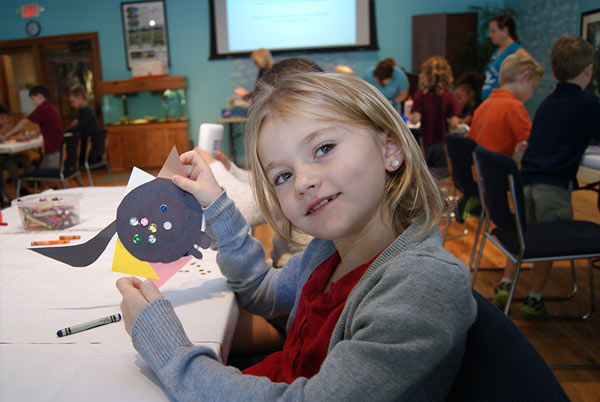
Fish Morphology
This fun and unique program provides a detailed look into the differences between fish species and adaptations found throughout nature. Students will get up close to the River Center’s aquariums learning about different fish species, habitats, and characteristics. We will create their own fish using different art media to create different adaptations based on their ecosystems and specific habitats.
Recommended: Grades K-2
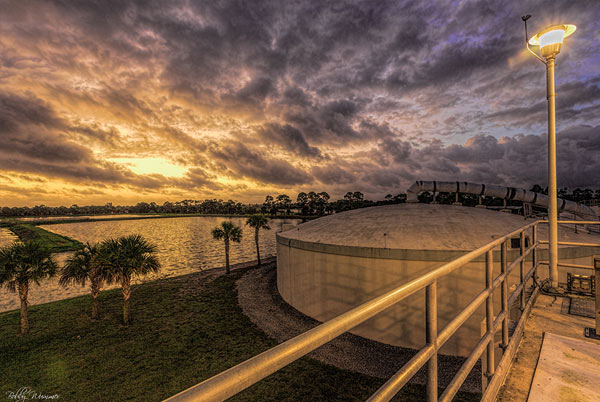
Loxahatchee River District’s Wastewater Treatment Facility: A Biological Process
This program is a trip to the Loxahatchee River District’s wastewater treatment facility where students will learn about the biological process to create irrigation quality water for the community. Educators will investigate the nitrogen cycle, perform water quality testing, and discover new industrial technology that is used on a community scale. Students will recognize the importance of water reclamation in relation to water conservation and those that are in the wastewater treatment field.
Recommended: Grades 9-12 (adaptable for 6-8)

Oyster Reef Ecology Lab
This activity includes a habitat assessment using samples taken directly from the Loxahatchee River (oyster restoration bags). Macro and Micro organisms are discovered, identified, and classified using microscopes. Students are getting a firsthand look at the primary consumers of the food web in relation to fish nursery food supplies.
Recommended: Grades 3-5 (adaptable for 6-8)

Squid Dissection
Using proper dissection tools and techniques, River Center educators will be performing a scientific dissection of a squid. Students will learn the classification of squid, their anatomy, characteristics, and adaptations.
Recommended: Grade 5 (adaptable for 6-8)

Water Quality of the Loxahatchee
Students will learn and recognize the factors that influence or change water quality in the Loxahatchee River. They will discover the challenges of estuary species affected by water quality changes (aquatic plants, oyster, juvenile fish, invertebrates, bacteria). Educators will conduct water quality testing and recognize parameters that identify changes and potential hazards. Through this lesson, students will understand the importance of water resources and conservation.
Recommended: Grades 6-8
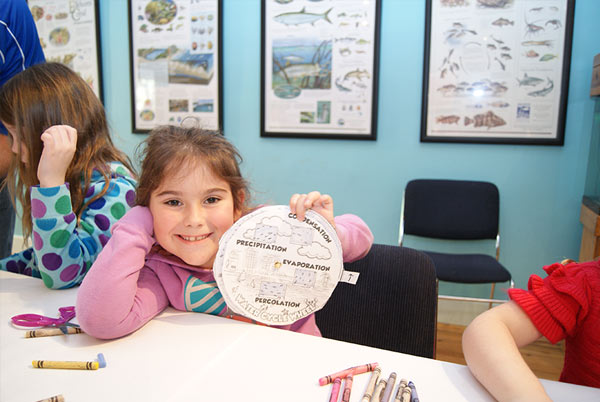
Water Cycle
This virtual fieldtrip will introduce students to the various steps of the water cycle and will help them make connections between the water cycle and all livings things. It will cover vocabulary such as evaporation, condensation, precipitation, percolation and runoff. Educators will show demonstrations and activities to help students understand the magical movements of water.
Recommended: Grade 2 (adaptable for 3-5)
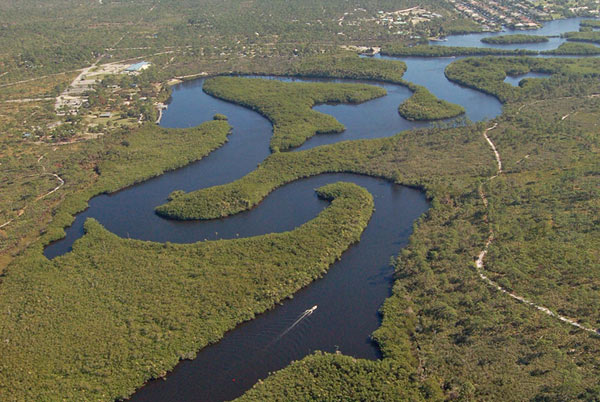
What does it mean to be a Wild and Scenic River?
The Loxahatchee River was designated a National Wild and Scenic River in 1985, the first in the state of Florida. What does it mean to be a Wild and Scenic River? Students will learn about the Wild and Scenic Rivers Act of 1968, the effort that local citizens took to protect the Loxahatchee, and the Loxahatchee River Resolution of 1983. We will also look at the current and future management, protection, and restoration projects.
Recommended: Grades 7-12
Video Available Here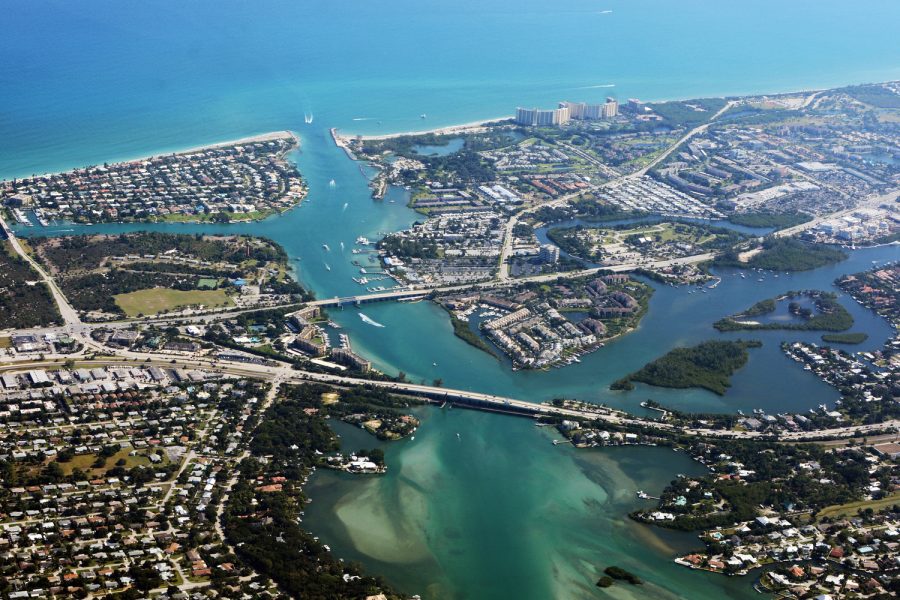
Stormwater Debris and the Loxahatchee River
Stormwater is rainwater that flows off our streets and properties and often enters a stormwater drainage system. In many older neighborhoods, stormwater is designed to move to the nearest water body including the Loxahatchee River, Intracoastal waterway, and their tributaries. Unfortunately, the stormwater entering these systems also transport debris, trash, and nutrients. Students will learn about stormwater research, current data, and solutions to providing pollution prevention. Everyone can help our river by keeping pollution out of storm drains.
Recommended: Grades 4-6
Video Available HereFor questions please contact the River Center at 561-743-7123 or Education@lrecd.org


